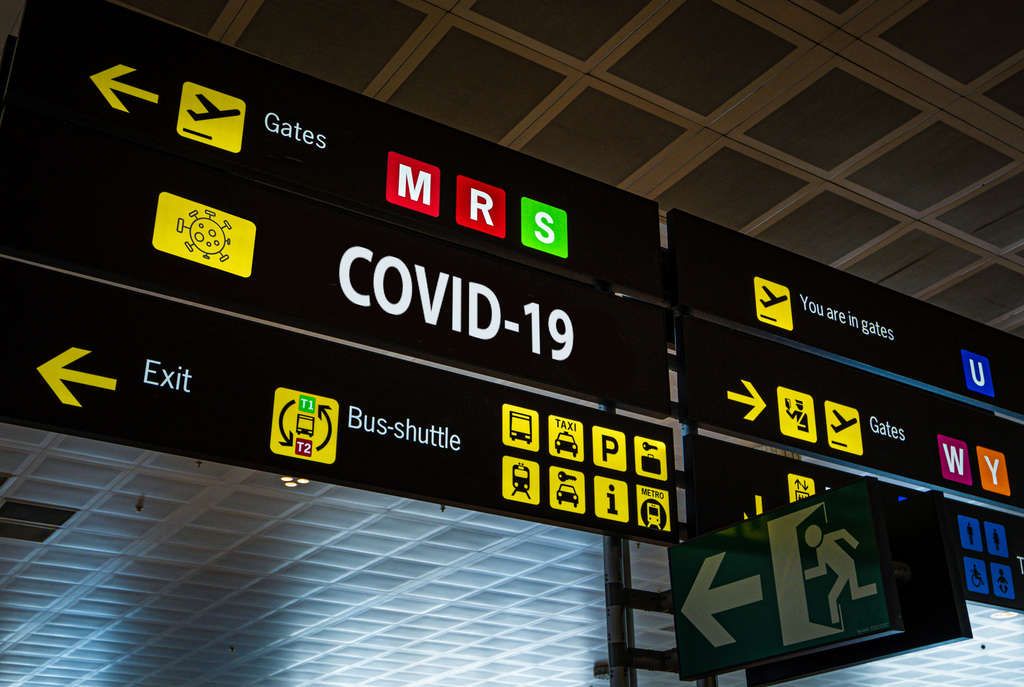
A couple of months ago, we never could have thought that the global economy and subsequently the world would have come to a pause. The COVID-19 pandemic and the associated restrictions on business activity and travel have caused a tremendous impact across all market industries and especially in the hospitality industry. The constant decrease in occupancy rates and revenue per available room has imposed unprecedented challenges not only to hotel owners and operators but also to investors and lenders. On one hand, hotel owners and operators are trying to tackle the crisis by making hard decisions in terms of staffing and continuing or suspending operations. On the other hand, the investors and lenders are questioning the risks, returns and the subsequent value and credibility of their investments. One of the most challenging factors in assessing the final net impact of this crisis is the uncertainty surrounding the duration and depth of this downturn. As a result, in order to come up with an accurate approximation of the impact on hotel values, it would be possible to utilize the value trends in previous cycles. The historical patterns in conjunction with the current market’s expectation of industry performance could form an acceptable guide for hotel values post-COVID-19 crises.
 The immediate effects of this crisis are the contraction of available capital and the poor performance of the hospitality sector. These two determinants drive not only the volume of real estate transactions but also the price of the individual assets. When the industry is experiencing an upward performance and there is easy access to capital with favorable terms, investors and lenders are engaging in an increasing number of transactions. However, nowadays the market is experiencing a contraction in demand due to the pandemic, which drives hotel owners to be more reluctant in selling their assets, as the sale price will be underestimated. Additionally, lenders refrain from engaging in transactions and when they do, they provide lower leverage with higher than usual rates leading to a significant decrease in the number of transactions. Evidence from the recession in 2007, prove that the hospitality industry took three years in order to start accelerating and about seven years in order to reach the number of transactions it used to experience just before the start of the recession.
The immediate effects of this crisis are the contraction of available capital and the poor performance of the hospitality sector. These two determinants drive not only the volume of real estate transactions but also the price of the individual assets. When the industry is experiencing an upward performance and there is easy access to capital with favorable terms, investors and lenders are engaging in an increasing number of transactions. However, nowadays the market is experiencing a contraction in demand due to the pandemic, which drives hotel owners to be more reluctant in selling their assets, as the sale price will be underestimated. Additionally, lenders refrain from engaging in transactions and when they do, they provide lower leverage with higher than usual rates leading to a significant decrease in the number of transactions. Evidence from the recession in 2007, prove that the hospitality industry took three years in order to start accelerating and about seven years in order to reach the number of transactions it used to experience just before the start of the recession.
It is clear that hotel revenues and prices decline during a downturn in the economy. According to the data of previous crises, the decline of revenue per available room is closely correlated with the decline in Gross Domestic Product (GDP). However, during the COVID-19 crisis, the RevPAR has declined due to an external factor, which is the freeze of the travel and business activity. Nevertheless, this factor will impact the GDP, which is expected to decrease significantly and make this economical contraction worse than the recession of 2007.
By taking a closer look at the market conditions for 2020 prior to the appearance of the pandemic, the expectation for revenue and EBITDA growth was modest mainly due to the integration of new supply. On the other hand, there was the availability of capital in the forms of both debt and equity and the interest rates were held at low levels. As a result, it was expected that the values would slightly increase or remain relatively stable. However, in the light of COVID-19, the expectations in hotel values are significantly altered. The EBITDA is expected to reach very low or even negative levels due to the reduced revenue caused by the falling ADR and occupancy rates. Additionally, the contraction of capital from the debt markets may drive up the all-cash transactions, which in turn would encourage a further decrease of the values.
Large hotel chains or even smaller boutique hotels are constantly trying to tackle the current crisis by changing their cancellation policies and supporting the well – being of their customers. The vast majority of hotels have changed the cancellation policy for bookings up to the 30th of June, even if the booking was made by a third party. Additionally, they provide online yoga sessions in order to help maintain the mental health of their customers. The small number of hotels, which is still operating during this difficult time, has adopted new standards on hygienic practices in order to ensure the safety of their customers and also stop the spread of the pandemic.
During the time of COVID-19, hotels are trying to minimize theirs loses and invest in their marketing in order to attract as many guests as possible in the future. As a result, it is very important to maintain the same percentage of revenue, which is spent for marketing purposes. On the other hand, the revenue is significantly lower leading us to the conclusion that it is necessary to optimize the funds used in marketing by auditing the marketing assets, record videos today that will be used in the future on social media or even improve online reviews strategy and ultimately enhance the hotel’s digital marketing.
To sum up, the current crisis could be proven worse than the last recession of 2007 but the market forces that encouraged the recovery in the past are expected to influence the market again and reinstate the global economy. As far as it concerns the recovery of the hotel industry, it is a long process but the wise investment in marketing and the appropriate cost-cutting could lead the hotels outside of this crisis and help them survive with the minimal cost.



